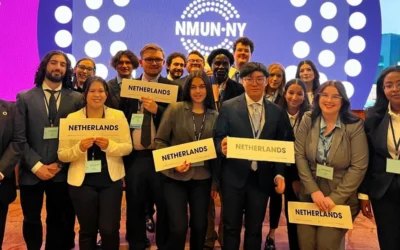We’ve all been there.
You’re talking about the last episode of your favourite show, or maybe you’re freaking out about the incredible album your favourite band just dropped, and then you hear it: “That’s what you like? Really?”
There is a certain displeasure that’s expressed by people who don’t approve of your choices where your likes and dislikes are concerned, but curiously enough, this disapproval seems to be reserved mostly for things that happen to be popular or a part of the mainstream.
A Saturday spent dancing away at a One Direction concert will hardly garner the appreciation and awe that a Saturday spent attending the opera will bring.
The difference in these reactions is not a random occurrence. A longstanding idea about pop culture is that it lacks a certain worth or prestige, and belongs to the lower rungs of society. In other words, One Direction may be fun to dance to, but it doesn’t deserve the same kind of respect as an opera singer.
Highs and lows
This idea is rooted in the categorization of popular culture as low culture, as opposed to esteemed cultural practices, which are considered high culture.
High culture normally refers to cultural works and practices which are considered to be the most important or distinguished in their respective fields. The epic poetry of Homer would be considered high culture because of the foundational role it has had in literary studies and how we create new works of literature.
Low culture, on the other hand, is seen as a body of commercial, mass-produced products that are insignificant or lack the same kind of prominence as the works categorized as high culture. Stephenie Meyer’s Twilight books might have been the big thing when many of us were teenagers, but they’re considered to be an obvious example of low culture.
Differentiating between high and low culture is a rather arbitrary process, too. There is no guideline to refer to in order to see what qualifies as high culture, so the designation of high and low culture can vary from widely depending on who is making the classification.
In academia, scholars have earned a reputation as people who deal mostly or even exclusively in high culture. While this might not necessarily reflect the entire reality of the relationship between academics and pop culture, many scholars argue there is some truth to it.
A strained relationship
While some academics are happy to incorporate pop culture into their study and research, many others refrain from doing so on the grounds that pop culture is not high culture, and thus not worthy of academic study.
Peter Roccia, an associate professor in MacEwan University’s communications studies department, has plenty of experience with the strained relationship between academia and pop culture.
Roccia’s study of pop culture began in his time as a graduate student and teaching assistant at Western University in 1990, when he was offered the chance to lecture on comic books.
“At that time, they were starting the very first pop culture courses in the English department,” Roccia said. “Pop culture studies and academia have come a long way.”
So, what is pop culture, exactly?
Roccia said there are three different ways to define ‘popular’: how much money it takes, how many people know about it, and the kind of fears or wishes it fulfills.
Popularity, then, is not a measure of the quality of any certain work, so why has popular become synonymous with disposable and unimportant?
Quality vs. reputation
“When you’re talking about academia in terms of people who become professional academics … you have to acknowledge the fact that they are not a representation of society more broadly,” said Tami Bereska.
A social psychologist and sociology professor at MacEwan University, Bereska believes those in charge of classifying works and their place in different social hierarchies play a critical role in how our perception of popularity and pop culture is shaped.
“There’s an overrepresentation of scholars who themselves are from elite backgrounds,” she said.
Pair this with the status of academics as members of society’s intellectual elite, and the pressure on academics to maintain a certain exclusivity becomes apparent.
“Academia isn’t separate from the rest of society, so the same social forces and social phenomena that you see in society at large … are often reproduced within academic environments as well,” Bereska added.
Bereska explained the issue of identity is one that has a significant impact on what academics consider worthy of their study, adding that pop culture is perceived as unimportant by the general public. This then discourages academics from studying pop culture in the same way they would study classic works.
In turn, academia’s rejection of pop culture only reinforces the reputation pop culture has of being a negligible field, thus creating an endless cycle of reactions that can be difficult to break.
“The cultural products you integrate into your daily life … are ways you are performing your identity every day, so you can’t separate pop culture from identity,” Bereska said, explaining that adopting or rejecting pop culture can be a key component of personal identity.
Seeing the other side
Mike Perschon, an English professor at MacEwan University, recalls instances where he witnessed this rejection, both as a doctoral student studying pop culture and later as a professor.
“There’s lots of literature scholars who don’t have this approach, but there is definitely a mistrust or a rejection of things that are popular in academic circles,” Perschon said.
“We say we’re scholars of this thing, but how can we say that when we’re picking and we’re choosing what we’re paying attention to?”
Perschon explained that with the changes in the way we produce and distribute media, pop culture now has the ability to make widespread and lasting changes in the way we understand the world.
As pop culture’s impacts grow, it becomes even more important to study it the way we do the classics.
“Canon is valuable for continuity within a discipline,” Perschon said, adding that blending pop culture and academia doesn’t make the canon any less valuable, but that the process of what is canonized must be revisited as new works are created.
He stressed, however, that where the relationship between pop culture and academia is concerned, MacEwan is moving at a faster pace than other institutions.
“MacEwan has been awesome in letting us try these things out, so the pop culture stuff we’re getting is still ahead of the curve, from what I know of,” Perschon said.
So, is there hope to be had for a better integration of pop culture in academia?
“In the (26 years) that I’ve been teaching pop culture, that argument that pop culture is low and not worthy of study has slowly eroded,” Roccia said.
It helps to remember that literary greats like Shakespeare produced what would be considered the pop culture of their time, and it was only with the passing of time that their work came to be recognized as quality works of literature.
The change won’t come overnight, but already, the barriers set in place to keep pop culture from the world of academics are disintegrating.




0 Comments